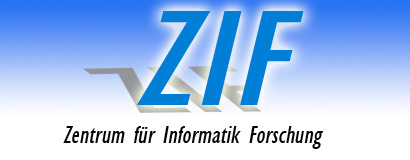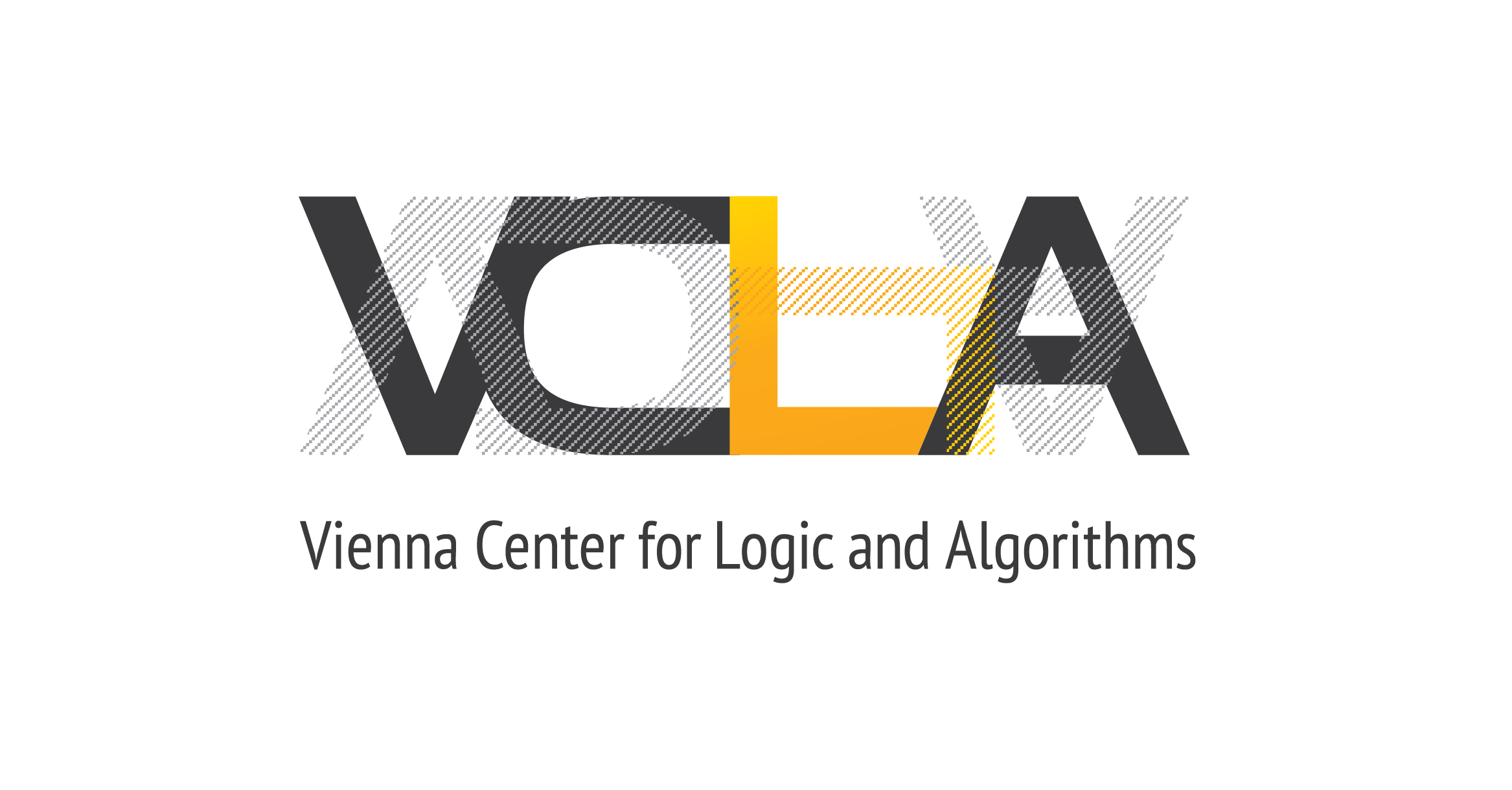Workshop on Recent Trends in Formal Argumentation
The workshop will take place on July 9 at TU Wien.

July 9th 2024
- 13:30 – 17:00 CEST
- TU Wien, Campus Favoritenstraße, FAV Hörsaal 1 Helmut Veith
-
1040 Vienna, Favoritenstraße 9-11
Ground Floor, Room HEEG02
Workshop on Recent Trends in Argumentation will be held on July 9, 2024, at TU Wien.
About the Workshop
Formal argumentation is a vibrant subfield of symbolic artificial intelligence in which methods from knowledge representation and reasoning are used to model argumentative scenarios and deal with inconsistent information. The Workshop on Recent Trends in Formal Argumentation will bring together renowned and upcoming researchers in the field to discuss formal argumentation and its connections to non-monotonic logics, explainable artificial intelligence, and computational social choice.
Program
13:30 - 14:00
Beishui Liao:
Attack-defense semantics of argumentationAbstract argumentation is an important research area in AI. It is mainly about the acceptability of arguments in an argumentation framework. Classical notion of defense has not fully reflected some useful information implicitly encoded by the interaction relation between arguments. In this paper, instead of using arguments and attacks as first citizens, a novel notion of attack-defense is adopted as a first citizen, based on which a theory of attack-defense framework and attack-defense semantics are established, where an attack-defense is a triple (x, y, z), meaning that: argument x defends argument z against attacker y. Attack-defense semantics can be used not only to identify the impact of arguments in some odd cycles, and remove some “useless” defenses, but also to capture new types of equivalence that cannot be represented by the existing notions of equivalence of argumentation frameworks. In addition, it shows that attack-defense framework and attack-defense semantics can represent some knowledge that cannot be represented in Dung’s argumentation, e.g., some context-sensitive knowledge in a dialogue.
14:00 - 14:30
Johannes Wallner:
Instantiations and Computational Aspects of Assumption-based ArgumentationCentral to many forms of argumentative reasoning in Artificial Intelligence (AI) is an argumentation workflow, embodied formally in several approaches within the field of structured argumentation. In these approaches, arguments are drawn from defeasible and conflicting knowledge. In recent years, research of computational aspects of reasoning in such structured argumentation formalisms gained more and more attention in the research community. We give an overview of recent developments in one of the prominent formalisms in this field: assumption-based argumentation (ABA).
14:30 - 15:00
Anna Rapberger:
On the Robustness of Argumentative ExplanationsThe field of explainable AI has witnessed significant growth in recent years. Within this landscape, argumentation frameworks have shown to be helpful abstractions for providing explanations. While existing work on argumentative explanations and their properties has focused on static settings, we focus on dynamic settings whereby the model underpinning the argumentation framework undergoes changes. A critical question concerns the robustness of the explanations drawn from the initial framework. Are explanations robust to extension-preserving changes, in the sense that they are still valid when the changes of the underlying knowledge base do not affect the outcome of the framework? If this is not the case, can we utilize the formerly drawn explanations to compute the updated explanations efficiently? In this talk, I will present recent results on the robustness of explanations based on dispute trees, assuming different equivalence relations (i.e., ordinary and strong equivalence) between the original and the updated framework.
15:00 - 15:30
Coffee Break
15:30 - 16:00
Leon van der Torre:
Weakest Link, Prioritised Default Logic and Principles in ArgumentationIn this article, we study procedural and declarative logics for defaults inmodular orders. Brewka’s prioritised default logic (PDL) and structured ar-gumentation based on weakest link are compared to each other in differentvariants. This comparison takes place within the framework of attack re-lation assignments and the axioms (principles) recently proposed for themby Dung. To this end, we study which principles are satisfied by weakestlink and disjoint weakest link attacks. With the aim of approximating PDLusing argumentation, we identify an attack defined from PDL extensions,prove that each such PDL extension is a stable belief set under it, and offer asimilar principle-based analysis. We also prove an impossibility theorem forDung’s axioms that covers PDL-inspired attack relation assignments. Finally,a novel variant of PDL with concurrent selection of defaults is also proposed,and compared to these argumentative approaches. In sum, our contributionsfill an important gap in the literature created by Dung’s recent methods andopen up new research questions on these methods.
16:00 - 16:30
Gabriele Kern-Isberner:
Wolfgang Spohn's view on argumentation, or how belief revision drives nonmonotonic reasoning and argumentationIn his works, Wolfgang Spohn describes a fundamental and close relation between arguments, reasoning and inference on the one hand, and epistemic states, their dynamics, and conditionals on the other hand. In particular, he understands arguments as entities which inherently involve conditional reasoning and dynamic aspects. The talk starts with discussing central claims of Spohn's view on arguments in this broad context, and then presents a formal framework for modelling such (argumentative) reasoning processes which connect inductive (conditional) reasoning, belief change, and epistemic states. This framework also allows for taking background beliefs into account which results in diverse scenarios for belief dynamics. We illustrate the framework by ranking-theoretic reasoning based on so-called c-revisions. This talk is based on the paper "Inductive Reasoning, Conditionals, and Belief Dynamics" by Gabriele Kern-Isberner and Wolfgang Spohn, Journal of Applied Logics, Special Issue on Foundations, Applications, and Theory of Inductive Logic, Guest Editors Martin Adamcík and Matthias Thimm, Volume 11, Number 1: January 2024, p. 89--127. https://www.collegepublications.co.uk/ifcolog/?00063
16:30 - 17:00
Oliviero Nardi:
Combining Voting and Abstract Argumentation to Understand Online DiscussionsOnline discussion platforms are a vital part of the public discourse in a deliberative democracy. However, how to interpret the outcomes of the discussions on these platforms is often unclear. In this paper, we propose a novel and explainable method for selecting a set of most representative, consistent points of view by combining methods from computational social choice and abstract argumentation. Specifically, we model online discussions as abstract argumentation frameworks combined with information regarding which arguments voters approve of. Based on ideas from approval-based multiwinner voting, we introduce several voting rules for selecting a set of preferred extensions that represents voters’ points of view. We compare the proposed methods across several dimensions, theoretically and in numerical simulations, and give clear suggestions on which methods to use depending on the specific situation.
Speakers
- Gabriele Kern-Isberner (TU Dortmund)
- Beishui Liao (Zhejiang University)
- Oliviero Nardi (TU Wien)
- Anna Rapberger (Imperial College London)
- Leon van der Torre (University of Luxembourg)
- Johannes Wallner (TU Graz)




